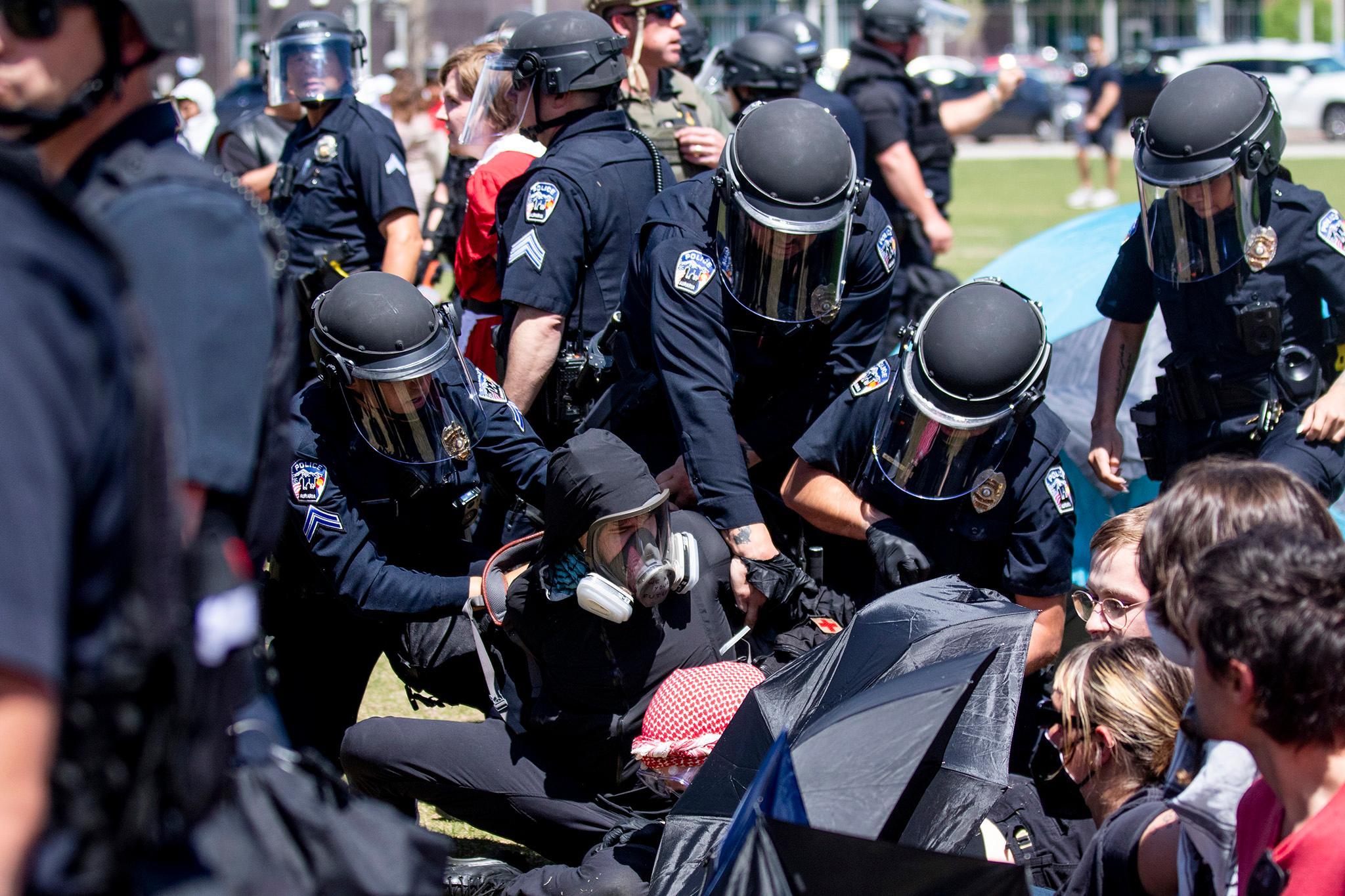Several protesters arrested during last year’s anti-war encampment at the Auraria Campus have filed a lawsuit against members of the campus police department, alleging illegal suppression of free speech.
The lawsuit was jointly filed by eight protesters who were arrested on April 26, 2024. The group includes students and professors from the three higher education institutions that make up the Auraria Campus, as well as members of the public.
The plaintiffs were part of a month-long camp protesting Israel’s war in Gaza. Organizers of the camp called for the three universities to oppose the ongoing war, including by issuing statements in opposition to violence against Palestinian people and severing financial ties to companies operating in Israel.
Ceasefires meant to end the war disintegrated in March as Israel resumed strikes on Gaza, alleging that Hamas had not held up its end of the deal. Since the war started, tens of thousands of Palestinians have been killed by Israeli military forces, with even more injured. The war began in October when Hamas killed more than 1,000 Israelis and took another 200 hostage.
During the protest in Denver, 80 people were arrested or issued summons for trespassing. The bulk of the arrests were on the second day of the protests, when Auraria and Denver police officers broke up an early iteration of the camp.
The lawsuit alleges campus police targeted free speech, not the tents
Auraria Campus officials have said they support and allow “the right to peacefully assemble”, but they maintained protesters were breaking a longstanding camping ban, one that was introduced shortly after a similar antiwar camp in 2003 over the war in Iraq.
But the lawsuit alleges that the protesters were in compliance with the policy and had already taken down the tents when police said they were trespassing and issued an order to disperse.
“That shows us that the tents are really the excuse,” said lawyer Azra Taslimi. “They really just didn't want the protesters there. And this was really about silencing speech.”
Additionally, none of the plaintiffs were campers. Many were bystanders who joined the protest when police began to forcibly break it up.
“Three of us, all from our faculty union, decided to go and join the line of students and sit down in the hope that it would deescalate the situation, it might prevent violence,” said Alex Boodrookas, a professor who teaches Middle Eastern history, shortly before the lawsuit was filed in Denver District Court on Wednesday.
Plaintiffs said they joined the lawsuit because they felt the arrests and the show of force from Auraria police were unjustified.
“We should be able to protest peacefully in this country,” said Sarah Napier, one of the plaintiffs. “This is what our country is based off of.”
Auraria Campus spokesperson Devra Ashby said Wednesday that they were not aware of a lawsuit and had not been served papers.
"We are committed to following the appropriate legal processes and will respond through the proper legal channels should we receive notice," she said.
The arrested protesters said they have no regrets.
The city opted to not pursue charges for many of the 40 people arrested on April 26. Of the eight plaintiffs, four had their charges dismissed, while the others entered “deferred prosecution” agreements, where the city drops charges if the defendant agrees to stay out of trouble or some level of community service.
“There's never a plea, there's never a conviction,” Taslimi said. “It's as if it never happened.”
But Boodrookas described the legal challenges as a “long and stressful process” and feels his professional reputation will take a hit despite charges being dropped.
Napier echoed that sentiment.
“Some job opportunities were taken away from me because of it, but not anything too bad,” Napier said.
Boodrookas said a defense of free speech and the right to protest is especially pertinent during the Trump administration, which has revoked the visas of dozens of international students. The Department of Homeland Security said it will target students perceived to be speaking out against the United States’ foreign interests.
In Colorado, at least 10 foreign students or recent graduates have had their visas revoked.










